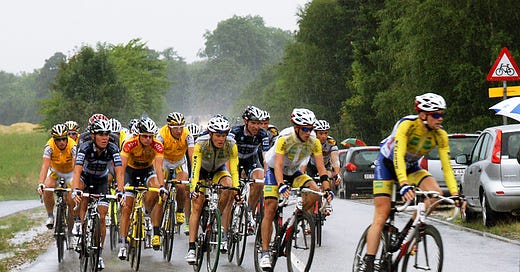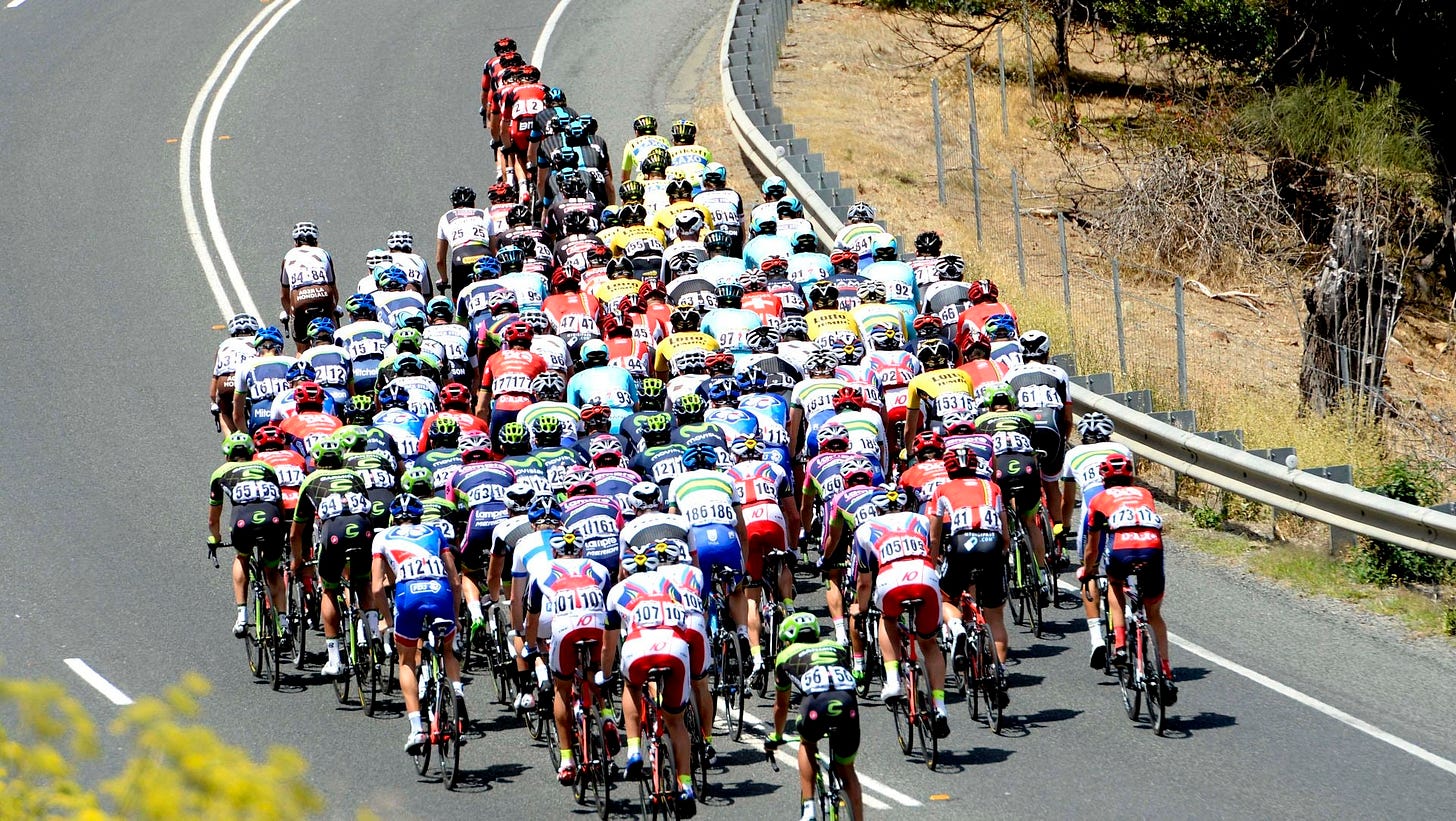A “peloton” has not always been an upscale stationary bike, an online fitness cult, or a hamster wheel for quarantined people.
Originally, the term “peloton” referred to a group or pack of riders in a bike race like the Tour de France. These large races last several days and the riders travel in packs, drafting off each other so that they can go faster as a group.
This is a peloton. And this model provides two lessons for worship leaders.
First, Lead from the front. Just as the person who's leading the peloton can help the whole group of cyclists go faster by pulling the group from the front, skillful worship leaders can spur a whole congregation to participate in congregational worship with engagement and intentionality.
Worship leaders might desperately desire to not be seen. Sometimes that desire emanates from a heart of humility; other times it is simply old-fashioned stage fright. But you can’t lead people without their seeing you. Worship leaders, remember the peloton, and humbly set the pace by leading from the front.
But consider our second lesson of the peloton: beware of the breakaway. Sometimes, the person at the front of the peloton will break away from the group (the technical, cycling term a “breakaway”—how do they come up with these names?). When the leader breaks away, the peloton simply lets them go and then . . . slows down.
Maybe you have seen a worship leader break away from the group. I know I have.
While I was in college, I was playing piano for a chapel service with a worship leader and a female singer. One of my good friends and all-time favorite singers, Megan, was singing. But she was also in charge of the overhead projector. (Not sure what an overhead projector is? Ask your grandparents! or watch the video at the end of this post.)
As the band played the introduction of our second or third song, Megan placed the transparency on the projector and began singing. Now, she was the type of singer who worked hard to fight distraction, saying “no” to the world and focusing on her Savior. And so, with great determination, she closed her eyes to fight all distraction, and accidentally placed the transparency on . . . backwards!
Can you picture this? The title on top with the words are below, but it's the mirror image.
And so, there she is—eyes closed, worshiping, ignoring the whole world. And the band started the song and is going through the first verse, except no one is singing and everyone is awkwardly laughing. The worship leader looked at the screen, then at Megan, and then he said to the congregation, “All right, let's sing that first verse again, but this time in the original Greek.”
It was an amazing ad lib, really funny. Megan simply flipped the transparency over and we went on.
But it’s a good lesson for us. Beware of breaking away. In your efforts to focus your attention on the Lord, beware of ignoring the congregation. (For similar thoughts, consider Bob Kaulfin’s hilariously titled article, “Open the Eyes of My Face, Lord.”)
Perhaps that’s the difference between being a “mere worshipper” and a “worship leader.” A mere worshiper (if there is such a thing) may have entire Sundays or even entire seasons when they simply need to concentrate on just the Lord. That's fine.
But the worship leader has a responsibility to their group—not simply the responsibility of being a worshipper, but the additional responsibility to lead this group in worship. Stay involved and aware.
A worship leader who abdicates their responsibility to lead throws their congregation into chaos and anxiety, creating a vacuum that other forces fill—forces that are usually inconsistent with the goals of a worship gathering. A worship leader has to be aware enough to know when the overhead is wrong, when their microphone is not on, or when the congregation is simply no longer with them.
Let’s learn these lessons from the peloton: Lead from the front and be aware of the breakaway.
“See” you next week!
If you have an extra three minutes and forty-five seconds, consider spending them with this (unintentionally hilarious!) video.






